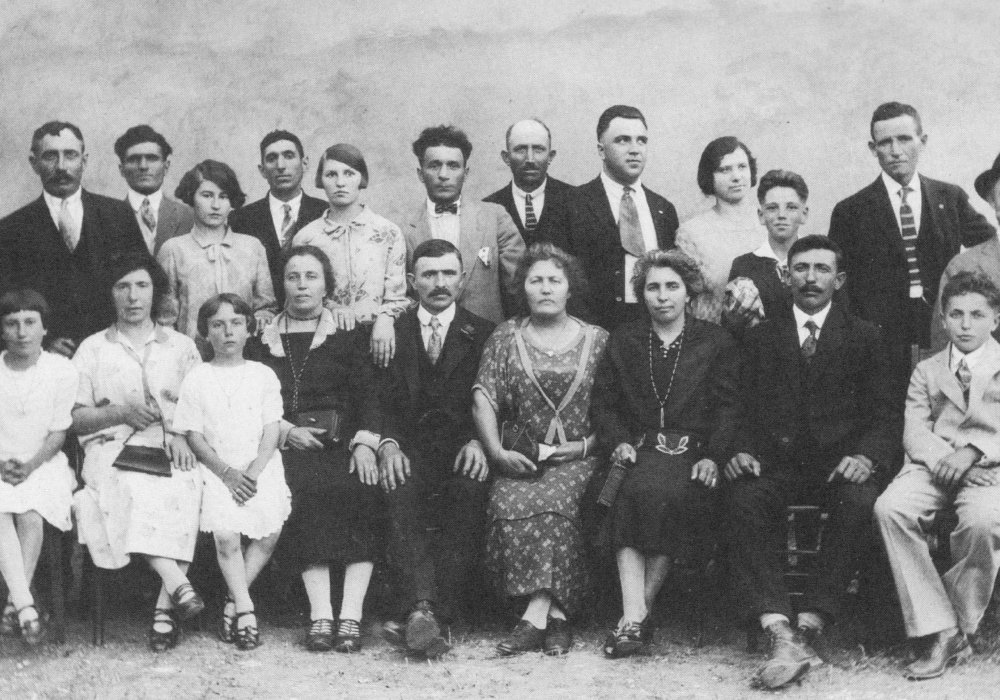The history behind our Italian Last Names

In ancient times, magical and sacred overtones were often the basis of a person’s name. The modern combination of a first name followed by a last name was established by the aristocrats in the Middle Ages and eventually filtered down to masses during the Renaissance. In 1593 the Council of Trento required parish priests to register parishioners by their first name (also referred to as Christian name) and last name in order to stop marriages between blood relatives.
The majority of Italian surnames derive from first names, originating from the name of the head of the household. The most common are Giovanni, Andrea, Anna and Rosa – with all their variant spellings. More than one third of Italian surnames are based on geographic locations – nations such as Bulgari, regions such as Lazio, cities such as Palermo, and places such as Della Casa.
Some surnames come from nicknames such as Grassi (big/fat), Gambacorta (shortleg), Gentile (gentle) or Forte (strong). Others derive from trades including Barbieri (barber), Pastore (shepherd) and Medici (physician). Occasionally, unusual circumstances gave away to surnames such as Fumagalli, meaning “smoked poultry." Thieves used to fill the hen-house with smoke so that chickens would be silent while being stolen… If your name is Fumagalli, one of your ancestors may have been a chicken thief.
Most spelling variations have specific regional origins. Surnames ending in –isi, as in Troisi, indicate a Neapolitan or Sicilian background; surnames ending in –aloro, as in Favaloro, are Sicilian; surnames ending in –igo, such as Barbarigo, are Venetian; surnames ending in –utti, as in Zanutti, are from Friuli Venezia Giulia; and those ending in –iu, such as Mongiu, are from Sardinia.
If your surname is Tripodi, your ancestors came from the region of Calabria and your surname is derived from the nickname tripodu, meaning “tripod”. The surname Amoroso originated in either Sicily or Puglia and derives from the adjective “loving or caring”. If the surname is Esposito, there is a good chance that your ancestor was from Naples. Originally a surname given to foundlings exposed in the streets or in front of churches, Esposito is today the number one surname in Naples and, in fact, the fourth most used surname in Italy after Rossi, Russo and Ferrari.
Changes in surnames have always occurred. Researching old records brings to light differences in spellings as names were translated from Latin to Italian and sometimes dialect. The latest changes happened during more recent migrations and many Italian surnames were adapted to the new environments. They were often translated into English, or “Americanized” which often involved shortening the name or dropping its final vowel.
If you wish to apply for Italian Dual Citizenship and/or research your Family History, you need to know the original spelling of your Italian surname. By researching local sources here in the U.S., you may find when and how your surname was changed. Census records, Naturalization records (in particular the “Petition” and “Declaration of Intention” forms), Ships’ Manifests, Social Security Death Index and vital records may list this information.
To determine all possible variations of a surname, use telephone directories (also available online) or mapping software programs that localize a surname and provide images of the regions, provinces or communes where people with that name reside today.
Our Surnames are part of our Italian Heritage and truly bind us to the culture, history and soul of Italy.
Interested in getting started with your journey to Italian Dual Citizenship?
We are offering a FREE 15-minute Telephone Consultation for applicants who have questions regarding Italian dual citizenship QUALIFICATION REQUIREMENTS, required documentation, ESTIMATED COST, timelines, and tips on how to make an appointment with the Italian Consulate here in the US (among other questions). We will also perform some free preliminary research to establish if you have a path to Italian Citizenship! Book your FREE Consultation at your convenience.
If you already know you qualify for Italian dual citizenship, you can purchase our Start-to-Finish Program. At My Italian Family, we don’t just give advice, we handle all the purchasing and preparation of your entire portfolio of documents, whether you apply at an Italian Consulate here in the U.S. or you apply in Italy (including 1948 Challenge Courts Cases). Our experience spans the past 20 years, and we have expert knowledge of what each Italian Consulate requires, as well as what the Italian Courts require. TO GET STARTED AND FOR MORE INFORMATION, CLICK HERE.
© 2019 MY ITALIAN FAMILY, LLC. All rights reserved.
